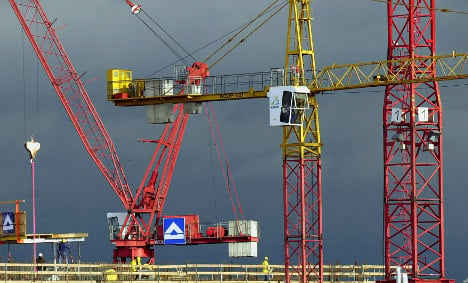Sources familiar with the talks said Moscow used a regular, closed-door meeting of the WTO's Council for Trade in Services, which covers cross-border commerce in areas including banking, finance and insurance, to criticize Washington's recent actions over Ukraine.
Moscow's trade delegation said Washington's sanctions are preventing Russian service suppliers from exercising their trading rights fairly and therefore put them at a disadvantage in the global economy, the sources said.
The United States hit back, saying that it took its WTO obligations seriously and had assessed its sanctions package carefully to ensure it did not break the rules.
Washington's stance was backed by the European Union's trade delegates.
Brussels' own sanctions against Russia did not come under attack by Moscow at the meeting, sources said.
Neither the US nor Russian delegation made reference to specific companies during the meeting, though Moscow said that one bank has been particularly affected, without naming it.
On Tuesday Washington said that Rossiya Bank, which is linked to Russian President Vladimir Putin, had lost $1 billion (720 million euros) in deposits since March and was forced to sell $500 million (360 million euros) in bonds to maintain liquidity.
The US Treasury said its measures — imposed over the escalating unrest in eastern Ukraine which is blamed on Moscow's meddling — had taken a toll on the Russian economy and warned more measures were possible.
The sanctions have so far stimulated heavy capital flight from Russia and plunged growth to near zero, it said, threatening to impose more if Moscow did not stop interfering in Ukraine and supporting pro-Russia separatists.
The Geneva-based WTO polices global trade accords in an effort to offer its 159 member economies a level playing field.
Russia, which joined in 2012 after a negotiating process that started in the 1990s, has not said whether it will seek to open a full-blown WTO dispute over the sanctions.
The WTO's dispute-settlement body has the power to authorize retaliatory trade measures against a country found at fault.
But disputes at the WTO are often highly complex and technical, and can last for several years as appeals and assessments of compliance are carried out.



 Please whitelist us to continue reading.
Please whitelist us to continue reading.
Member comments